Science Writers Symposium - November 10, 2008
| Speakers and Biographies | ||

David W. K. Acheson, M.D., F.R.C.P. Dr. Acheson joined the FDA in 2002 as Chief Medical Officer for the Center for Food Safety and Applied Nutrition before being named to head what would become the Center's Office of Food Defense, Communication and Emergency Response. In 2007 he was appointed Assistant Commissioner for Food Protection to advise the Commissioner of Food and Drugs, Andrew von Eschenbach, on strategic and substantive food safety and food defense matters. In 2008, his portfolio was expanded to an agency-wide leadership role for all food and feed issues, including health promotion and nutrition. Prior to coming to the FDA, Dr. Acheson conducted basic molecular research on foodborne pathogens, especially Shiga Toxin-producing E. Coli, first at Tufts University and later at the University of Maryland Medical School in Baltimore. Dr. Acheson received his M.D. from the University of London Medical School. |
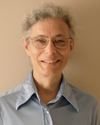
Suzanne Epstein, Ph.D. Dr. Epstein researches immune correlates of protection against Influenza A viruses in support of pandemic vaccine development. In her current role, she is leader of research management which involves horizon scanning and priority setting in the emerging field of cellular tissue and gene therapies. Dr. Epstein has been a reviewer of INDs for cellular, tissue and gene therapy products and led early cellular and gene therapy policy development. She obtained her Ph.D. in biology from MIT and was an immunology fellow at the National Cancer Institute. |
|
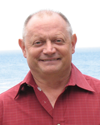
Jim Kaput, Ph.D. Dr. Kaput is the first director of NCTR’s Division of Personalized Nutrition and Medicine, created two years ago to better understand how the unique attributes of individuals affect the assessment of safety of foods, food components, nutrients and dietary supplements. Prior to coming to the FDA, he was an Assistant Professor, Department of Surgery, University of Illinois, Chicago, and Coordinator of Science and Administrative Activities at the Center of Excellence in Nutritional Genomics, University of California, Davis. Dr. Kaput earned his Ph.D. at Colorado State University and performed his Postdoctoral Fellowship in Cell Biology at Rockefeller University. |
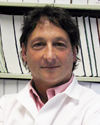
John W. Karanian, Ph.D. Dr. Karanian's interdisciplinary laboratory conducts applied and regulatory science investigations in four broad areas: local drug delivery/combination therapy, vascular pathophysiology, response to intervention, and predictive animal modeling. The lab's studies on the use of mechanical injury and dietary and endocrinological permutations to model human vascular disease have led to new and more predictive approaches to the safety evaluation of combination drug-device therapies. In addition to his FDA duties, Dr. Karanian is Associate Professor (Adjunct) at the Georgetown University School of Medicine, Department of Medical Physiology, where he received his Ph.D. |

Larry G. Kessler, Sc.D. Dr. Kessler directs the efforts of the laboratories of the Center for Devices and Radiological Health (CDRH), which play a crucial role in identifying key scientific questions and solutions concerning device safety and effectiveness. He previously served as Director of the Office of Surveillance and Biometrics at CDRH and as chief of the Applied Research Branch at the National Cancer Institute. His research focuses on applying quantitative methods and health services research to problems in surveillance and public health. In 2001-2002, Dr. Kessler spent a year as a visiting scientist at the Fred Hutchinson Cancer Research Center, working on research involving colorectal and lung cancer, prostate cancer trends, and the National Emphysema Treatment Trial. He received his Sc.D. from the Johns Hopkins University School of Hygiene and Public Health. |

Steven Musser, Ph.D. Dr. Musser oversees an extensive research portfolio at the Center for Food Safety and Applied Nutrition supporting a number of priority food and cosmetic programs, including counter-terrorism, dietary supplements, foodborne pathogens, food contaminants and natural toxins. He has directed the Center’s research in precedent setting areas of food research, which include food allergen detection, methods for detecting chemical contaminants, dietary supplement analysis and the use of proteomics for microbial epidemiology and classification. Dr. Musser received his Ph.D. in Medicinal Chemistry from the University of Maryland-Baltimore and completed a post-doctoral research fellowship at the National Cancer Institute. |

Renate Reimschuessel, V.M.D., Ph.D. Dr. Reimschuessel’s research focuses on the development of new animal drugs for aquatic animals. She recently developed an online database on fish pharmacokinetics that contains residue information for over 90 different fish species and over 200 chemicals. She has collaborated on many studies that have resulted in new methods for identifying illegal drugs in fish being imported for human consumption. She is also a leader in standardization and global harmonization of antimicrobial susceptibility testing methods for aquatic bacteria. Dr. Reimschuessel earned her V.M.D. at the University of Pennsylvania School of Veterinary Medicine and her Ph.D. at the University of Maryland-Baltimore. |
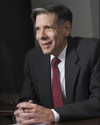
Frank M. Torti, M.D., M.P.H., F.A.C.P. Dr. Torti is an active and well known clinical investigator in urologic oncology and has made fundamental observations on the molecular action of oxidants and cytokines and their relationship to cancer and iron homeostasis. Prior to coming to the FDA in May, 2008, he was Charles L. Spurr Professor of Medicine, Director of the Comprehensive Cancer Center and Chair of the Department of Cancer Biology, Wake Forest University School of Medicine. He recently received a MERIT award from the National Institutes of Health, an honor bestowed on only 2% of all NIH grantees. Dr. Torti received his M.D. from Harvard Medical School and his M.P.H. from the Harvard School of Public Health, where he trained in cancer epidemiology and nutrition. He was an intern and resident at the Beth Israel Hospital, Boston, and a fellow in medical oncology at Stanford University. |
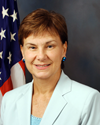
Janet Woodcock, M.D. Dr. Woodcock was the FDA's Deputy Commissioner and Chief Medical Officer, when she agreed to serve as acting director of the Center for Drug Evaluation and Research (CDER) in 2007 and then permanent CDER director in March 2008. An internist and rheumatologist, Dr. Woodcock has previously held several other leadership positions in the agency, including Deputy Commissioner for Operations and Chief Operating Officer; Director, Office of Therapeutics Research and Review; Acting Deputy Director, Center for Biologics Evaluation and Research, and Director of CDER from 1994-2005. Under her leadership, the FDA launched the Critical Path Initiative designed to bridge the gap between basic scientific research and the medical product development process. This initiative called for a collaborative cross-sector effort to modernize the drug development process and has resulted in several prominent partnerships looking at a wide variety of scientific issues. Dr. Woodcock received her M.D. from Northwestern Medical School and completed further training and held teaching appointments at the Pennsylvania State University and the University of California in San Francisco. |
|
Contact Us
For further FDA Science Writers Symposium information, contact us at:
- sciencewriters
@fda.hhs.gov - Registration:
301-827-9775 - Media Inquiries:
301-827-6244
Register by:
Monday, November 3, 2008